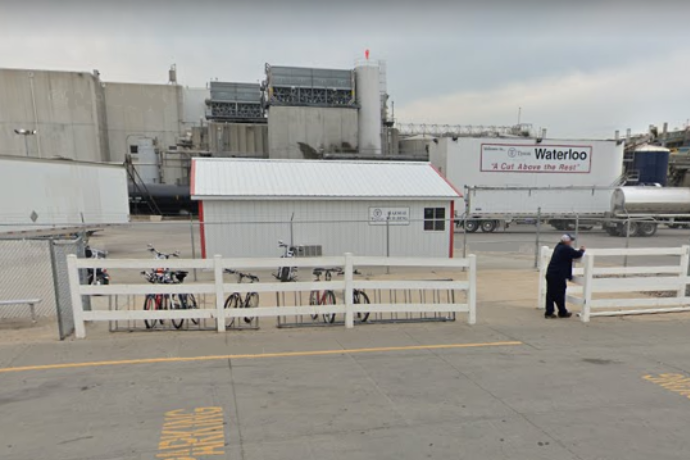SPRINGDALE, ARK. – Tyson Foods Inc. announced April 22 plans to indefinitely suspend operations at its largest pork processing plant, located in Waterloo, Iowa, due to concerns over the coronavirus (COVID-19). The plant, which employs 2,800 people, had previously decreased production in the face of increasing absenteeism rates and will stop production until further notice beginning mid-week, according to the company.
Later this week, workers will be invited to come to the plant for COVID-19 testing, the company said. The results of the testing will be a factor in determining when the facility will resume operations. Employees will continue being compensated during the closure.
“Protecting our team members is our top priority and the reason we’ve implemented numerous safety measures during this challenging and unprecedented time,” said Steve Stouffer, group president of Tyson Fresh Meats, the meat and pork processing subsidiary of Tyson Foods. “Despite our continued efforts to keep our people safe while fulfilling our critical role of feeding American families, the combination of worker absenteeism, COVID-19 cases and community concerns has resulted in our decision to stop production.”
The news comes during the same week Tyson announced operations at its Columbus Junction, Iowa, plant resumed on a limited basis after closing for the past two weeks due to increasing cases of the virus among its workers, including two deaths. Dozens of cases of the virus were also reported among employees at Tyson’s beef plant in Wallula, Wash., this past week. The company’s other meat and poultry processing plants are continuing to operate, although some have been forced to decrease production levels because of absenteeism and in some cases, during the implementation of worker safety precautions
Suspending operations at the Waterloo facility has a domino effect on the meat industry supply chain, given the volume of products normally produced there.
“The closure has significant ramifications beyond our company, since the plant is part of a larger supply chain that includes hundreds of independent farmers, truckers, distributors and customers, including grocers,” Stouffer added. “It means the loss of a vital market outlet for farmers and further contributes to the disruption of the nation’s pork supply.”



